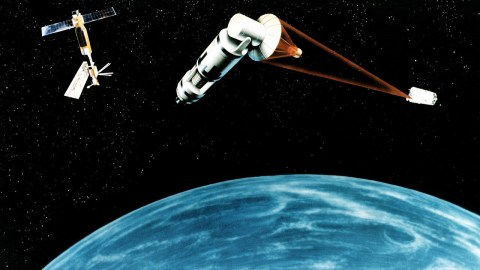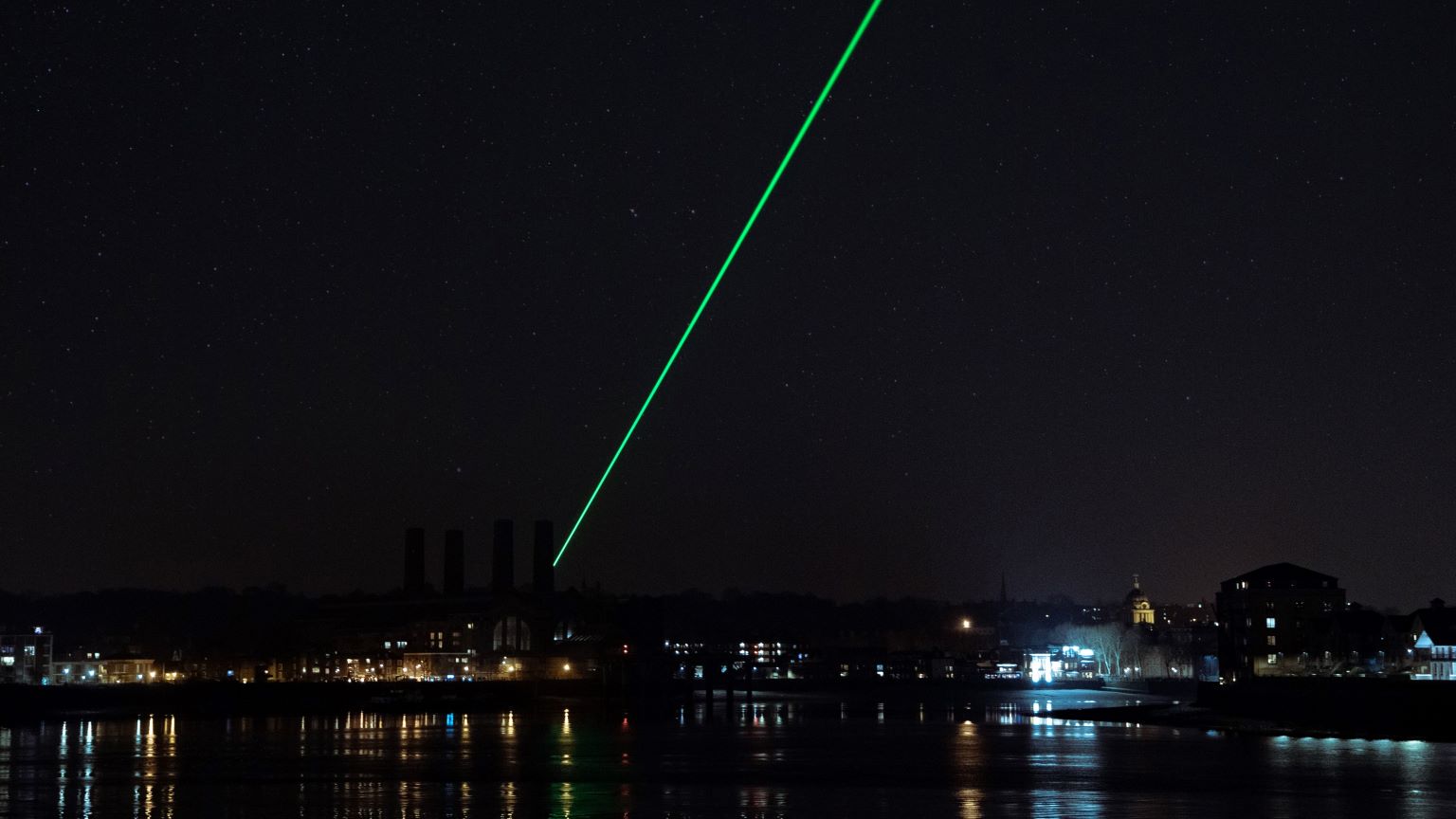China refutes U.S. claim that it’s pushing space ‘arms race’

| U.S. Air Force |
- A Chinese foreign minister refuted U.S. claims that China and Russia are developing space weaponry.
- China and Russia have recently ramped up cooperation on space programs.
- Meanwhile, the U.S. has been skeptical of both nations, arguing that they’re likely developing an array of space weapons.
Amid ongoing disarmament talks in Geneva, a Chinese foreign minister on Wednesday refuted U.S. accusations that China and Russia are advancing a space arms race by developing anti-satellite weapons and laser weapons.
“The Chinese side did not, and will not take part in an arms race in outer space of any form. Our stance remains unchanged,” Chinese Foreign Minister Spokesperson Geng Shuang told reporters.
“Here I want to remind all of you of a fact that the U.S. publicly defines outer space as a new battlefield. It has built an Outer Space Command and is building an outer space troop, and it plans to deploy laser weapons in outer space. Who is worsening the threat of weaponization and turning it into a battlefield? Who is threatening the security of outer space? I believe the answers are self-evident.”
Geng said the U.S. has “publicly positioned outer space as a new battlefield,” noting that the Trump administration plans to build a space force, and claiming that the American military seeks to place “laser weapons in outer space.”
The remarks came in response to criticism from Assistant State Secretary of Arms Control, Verification and Compliance Yleem Poblete, who on Tuesday asked how the U.S. could “trust Russian arms control efforts and their seriousness about preventing an arms race in outer space when they have touted the development and completion of a broad array of counter-space capabilities.”
She also voiced skepticism about the trustworthiness of the two world powers:
“Similar to Russia, it is difficult to determine the truthfulness of China’s concern about the prevention of an arms race in space and their support for space arms control when China:
- continues to pursue military capabilities such as jammers and directed energy weapons;
- when it openly emphasizes the need for offensive cyberspace capabilities;
- when it demonstrates sophisticated on-orbit capabilities with the potential for dual-uses; and
- when China has deployed an operational ground-based anti-satellite missile intended to target low-Earth-orbit satellites, with likely research on anti-satellite capabilities designed to threaten all orbits.”
Geng denied these claims.
“The U.S. accusations against China are totally groundless. China will not accept them. If the U.S. side truly cares about the security of outer space, it should work with China and Russia and actively participate in the arms control process of outer space instead of doing the opposite.”
U.S. concern over Russian and Chinese space weapons
In June 2018, China and Russia agreed to start cooperating on lunar and deep space exploration. That same month, the Trump administration announced its intent to create a space force. It’s not hard to see how China and Russia are likely threatened by U.S. space capabilities. After all, America has more operating satellites than any other nation, has a sprawling global military presence that includes space ground stations, and has been rather outspoken about space being the battlefield of the future.
Likewise, U.S. military officials have been skeptical of Russia’s and China’s intentions in space. In February, the U.S. Defense Intelligence Agency made public a report that said both nations are likely developing an array of space weapons and anti-satellite weapons, including “jamming and cyberspace capabilities, directed energy weapons, on-orbit capabilities, and ground-based antisatellite missiles that can achieve a range of reversible to nonreversible effects.”
Peaceful cooperation in space
In recent decades, China has evolved into a leading international space power. As Frank A. Rose, a senior fellow for the Atlantic Council’s Scowcroft Center for Strategy and Security, recently laid out in his testimony before the House Committee on Science, China aims to:
- assemble a lunar research station beginning in 2025,
- perform a crewed Moon landing mission in 2036
- establish and establish a Lunar Research and Development Base around 2050
- send a mission to Jupiter around 2029.
Rose notes that these projects “present multiple opportunities for international collaboration and partnership.”
“However, as this committee knows well, one of the key challenges to actively engaging China in more robust civil space cooperation is the fact that the Chinese civil space program is controlled by the Chinese military,” Rose said. “Therefore, there is a real possibility that any bilateral cooperation could contribute to China’s military space programs. In addition to its anti-satellite programs, China is also improving its space-based military reconnaissance, remote sensing capabilities, and communications capabilities.”
But that’s not to say there’s no way the U.S. and China could find a way to peacefully collaborate in space. There’s historical precedent for such cooperation, too, as Rose points out: The U.S. and the Soviet Union agreed to an Apollo-Soyuz docking mission amid the Cold War in 1975.
“Some feared that this mission would compromise the U.S. space program while providing further rewards to the Soviet program,” Michael Krepon of the Stimson Center wrote. “These anxieties proved to be overdrawn…The Apollo-Soyuz mission established practices of cooperation in space between Washington and Moscow that continue to this day on the international space station.”





